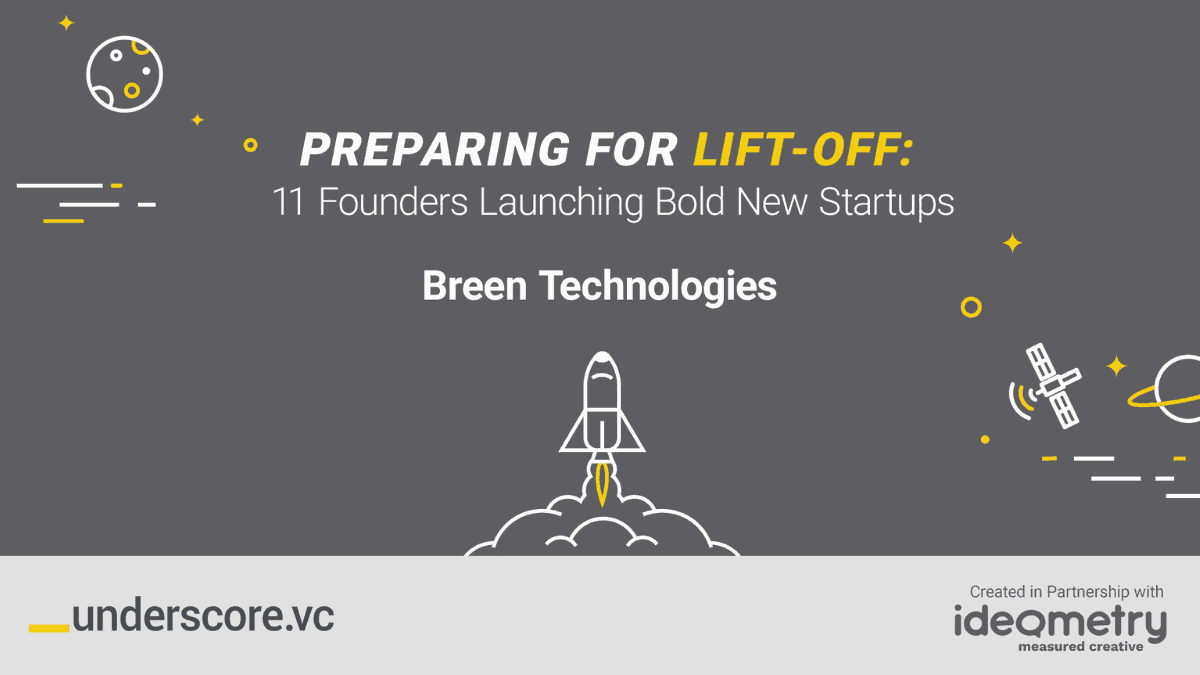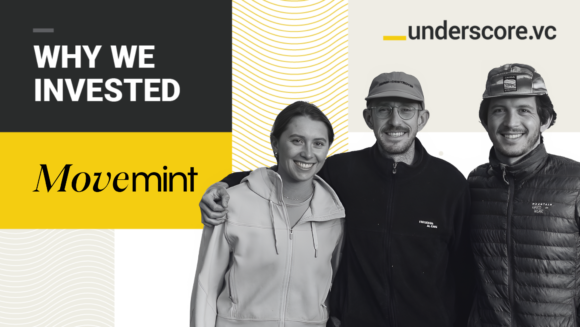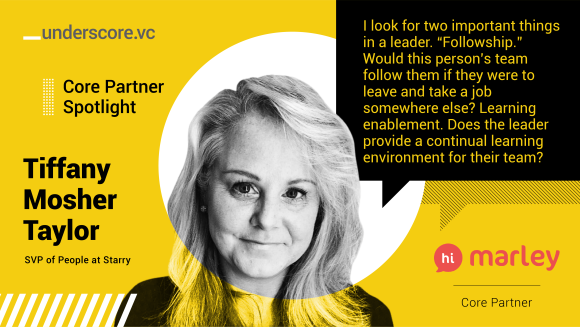This founder isn’t leaving the Internet of Things to its own devices.
Our new blog series, “Preparing for Lift-Off: 11 Founders Launching Bold New Startups,” features exclusive interviews with the founders from the latest cohort of our UFirst Summer Accelerator program. We’re sharing their stories and the daring ideas that are moving their companies forward. We’re excited to be working with them this summer, and hope you enjoy hearing about their journeys thus far and where they’re headed. This week, meet Mollie Breen, founder of Breen Technologies, who’s supplying the increasingly-ubiquitous Internet of Things with a fundamental service: security.

Despite computers getting installed into everything from your watch to your refrigerator, the Internet of Things (IoT) is far from secure. Mollie learned this all too well in her time working in security for the U.S. Department of Defense, so she decided to do something about it. Her resulting startup delivers a fascinating and entirely new way to design IoT security that may help all of our watches, refrigerators — not to mention global infrastructure — be a whole lot safer.
This is part 10 of 11 in our “Preparing for Lift-Off: 11 Founders Launching Bold New Startups” series created in partnership with growth marketing agency Ideometry. Tune in each week for another installment! Check out Part 9 with Sarah Wooders of Allparel.
Watch Breen Technologies pitch at the 2019 UFirst Demo Day above!
Tell us a bit about Breen Technologies.
Mollie: I am really passionate about IoT security. Previously, I was a mathematician at the Department of Defense. While I couldn’t bring IoT devices into work since our space was classified, it seemed every industry was putting IoT sensors on just about everything — from coffee makers to window blinds all the way to critical infrastructure like power grids. A network is only as strong as its weakest link, and so as the number of IoT devices increases, so do the number of vulnerabilities.
These devices are often built to be small and durable at the expense of being equipped to process security measures. While other solutions secure IoT from the inside out or protect only the most critical endpoints, I am preventing potential threats from ever touching the firmware of the device. Using a man-in-the-middle approach between the IoT device and its respective network traffic, we can keep ahead of the increase of smart things, and even smarter attacks.

How did you come up with this idea around Internet of Things security?
Mollie: I first realized IoT security was a problem during my time at the Department of Defense, but my approach to solving the problem has evolved through a lot of conversations with leaders in the industry. I initially thought about a router-level problem, but that involves replacing actual hardware. The man-in-the-middle approach came from wanting to simulate in software the hardware of the IoT device to detect in real-time the safety and security of incoming traffic.
What does the world look like when your company succeeds?
Mollie: Companies and consumers would be able to accelerate their adoption of internet-connected devices without having to wait for a security solution to catch up. I imagine a world where IoT buyers would be asking for your security implementations before they even buy it, instead of security being reactive like an insurance policy. The need for security will never go away, but I’d like to see a world where we are trying to build security into solutions from the ground up.
What drew you to UFirst? What are you hoping to get out of it?
Mollie: What I love about UFirst is this aspect that it’s not just about the business, but also about you. What drew me to this accelerator was that it puts both the business and me, personally, in a good place.
Every person that I’ve met has brought something to the table that I find really unique. The accelerator has people from different professional and personal backgrounds. I think it’s so important to incorporate opinions different from your own as early as possible. So the opportunity to get to work alongside so many people I wouldn’t otherwise have the chance to was something I couldn’t pass up.
What is your expectation at the close of the UFirst program? Where are you hoping to be after going through it?
Mollie: I’d love to have a paying customer. Business school can make starting a startup feel academic. At the end of the day, if you don’t have someone willing to pay for it, you don’t really have anything. What I’d love to have is someone who’s willing to purchase it. It would be a huge validation that I actually built something that someone else wants.
Being an entrepreneur, what are some of the biggest challenges you’ve faced along the way?
Mollie: I look around the cybersecurity industry and I don’t see a lot of people who look like me. I ask friends for advice and get their support. I really do want to move forward in this industry, it’s something that I am really passionate about. I’d love to be a role model for people that are also in my shoes or will be in the future.
Starting a business is no easy task. What is the driving force that gets you out of bed every day and motivates you to build your business? What helps you stay focused?
Mollie: I know I am in the right place. I’m doing something that’s energizing and challenging and actually making a difference.
No matter how far along I am, I always want to get to know the person behind the cold email, the customer, the partner, the employee. That’s what keeps me going.
What’s the most valuable piece of advice you’ve received about being a founder?
Mollie: My best friend is also an engineer and is a few years ahead of me in building a hardware-based start-up. She has given me some of the best advice. She reminds me that even after she has built a product, raised multiple rounds of capital, and has paying customers, people will still tell her that no one will care enough about the problem. It helps put into perspective that there will always be people telling you your idea won’t work. It’s not like I’m going to get to some milestone and they will all go away. They’ll always be there. You just have to be able to learn what you can from the feedback.
''There will always be people telling you your idea won’t work... They’ll always be there. You just have to be able to learn what you can from the feedback'' - @MollsBreen, UFirst Fellow & Founder of Breen Technologies Click To Tweet
What is your advice to first-time/aspiring founders?
Mollie: There is a saying in computer science that all features can be bugs and all bugs can be features. I like to remember that in some situations a quality of mine might feel like a bug, but that same bug can be a feature in a different situation. During my time as a mathematician, I would get frustrated with myself because I would crave collaborating with other people instead of purely coding all day. When I changed to a new role that allowed me to engage with others more I was happier at work. I try to apply this same principle to working with and leading people. Just because in one setting one person may not be a good fit, those same qualities can be real sources of strength in another setting.
Ideometry is a Boston-based full-service marketing agency serving a global client base. With a full suite of creative, development, and strategic services, Ideometry helps startups and Fortune 500 companies alike get the business results they’re looking for. If you’re doing something interesting, we’d love to hear from you. Get in touch with us at ideometry.com or email hello@ideometry.com








